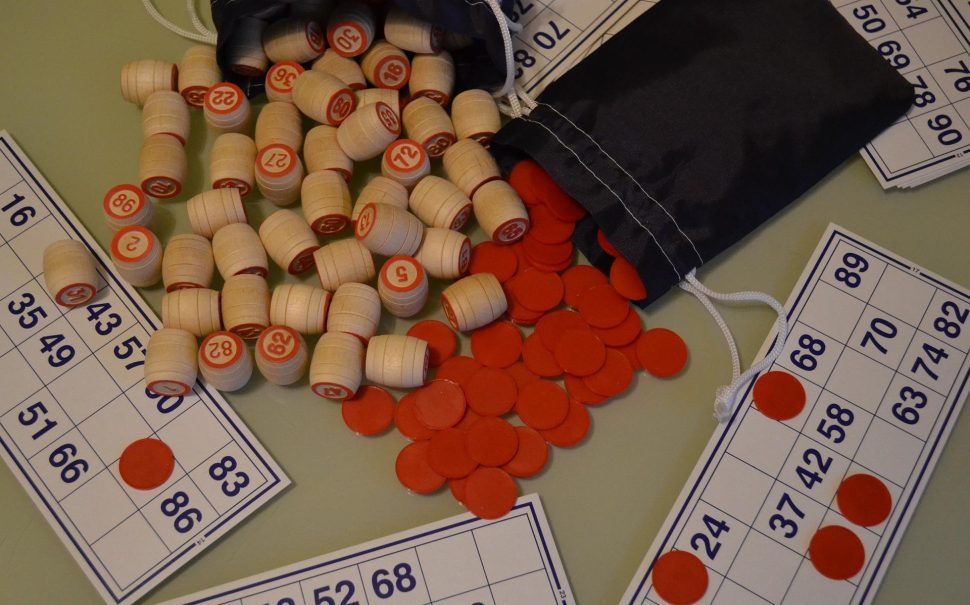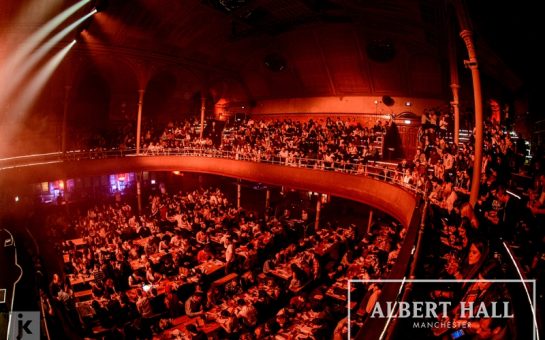Bingo has a lengthy history in the United Kingdom, dating back to when it was formally legalised as a gaming act in 1960.
Today bingo, both from traditional bingo halls as well as from online bingo websites and operators like www.winkbingo.com, contributes to the UK economy more than expected.
What is bingo?
Bingo is an exciting casino game that can involve entire rooms of people fighting against one another for the same goal: to get bingo, which can really be entertaining.
The game’s primary goal is to cover a specified pattern of numbers before anyone else.
This pattern can be as primary as five digits are written horizontally, vertically, or diagonally on your game sheet, or it might cover a previously set arrangement such as shapes or motifs.
Numbers are called randomly based on what is issued from the mechanical or electronic number generator; therefore, there is some element of chance involved, just as in any other casino game.
History of the bingo industry in the UK
While bingo was prevalent throughout the 20th century, it wasn’t until the 1960s Betting and Gaming Act that it exploded in popularity, transforming it from a simple game to a substantial corporation with large pay-outs for victors.
Bingo became a legal form of gambling in the UK after the 1960 legislation, and the gambling industry erected hundreds of bingo halls over the next few years.
How popular was bingo in the United Kingdom? During the 1960s, one operator, Mecca Bingo, reported that its bingo parlors attracted more than 150,000 players daily.
By 1963, the number of bingo club members in the United Kingdom had surpassed 14 million.
Considering that the UK had a population of 53 million people at the time, it’s easy to realize how popular the basic social game had become.
Bingo’s popularity
Nobody enjoys bingo as much as Britons. This chance game has always been immensely popular among British people of all ages, and this trend still continues.
Bingo parlors — both online and in brick-and-mortar businesses — generated a GGY of £910 million in the UK from April 2019 to May 2020.
Live bingo accounted for the majority of that (£635.9 million), but trends suggest that online bingo is gaining up.
Over the same time period, the amount of money wagered on bingo at online casinos increased by 0.9%, while the amount wagered in brick-and-mortar casinos decreased by 5.7%, which clearly indicates that online bingo is gaining more popularity now.
In 2018, bingo accounted for 3% of the online gaming market in the United Kingdom.
Brick-and-mortar bingo parlors accounted for 4.7% of the total.
Bingo has a 51.4% revenue share in brick-and-mortar gambling businesses compared to other games.
Moreover, 24.2% of UK internet gamblers indicated they enjoy online bingo, according to a recent survey.
Contribution to the UK economy
Bingo contributes more than Netflix and Spotify to the UK economy.
Netflix and Spotify have a combined turnover of £750 million, and bingo has a revenue of almost £1 billion.
According to media research firm Media, more individuals played bingo in 2019 than subscribed to Amazon (4.8 million) or listened to music on Apple (5.6 million) (3.8 million).
Regarding taxation, we only know that bingo income and customs duty receipts in the United Kingdom totalled £30.8 million in 2019-2020.
Online bingo operators, based in the UK or elsewhere, pay a 21 percent remote gaming duty on all profits, whereas physical bingo halls only pay a 10% bingo charge.
This was reduced by George Osborne in 2014 in an attempt to keep bingo halls operational, as many were closing at an alarming rate.
Many businesses with annual sales of £85,000 or more must pay VAT; however, bingo halls are generally exempt.
A company with £2 million in revenue may only make £200k in profit, thus, they will only pay tax on that £200k.
What attracts players to online bingo?
There are numerous advantages to playing bingo online.
The convenience of online bingo is one of its main advantages as you don’t have to plan a bingo night or wait for it to air on television once or twice a week.
Instead, online bingo gamers can play hundreds of different bingo games 24 hours a day, seven days a week.
Furthermore, because almost every reputable bingo operator now has a mobile-friendly website or downloadable app, bingo can be played on a mobile device.
Because the numbers are immediately crossed out of your ticket in an online bingo game, the action proceeds significantly faster.
This means you’ll spend less time in each bingo room and, as a result, you’ll be able to earn more money potentially.
Online bingo also succeeds in providing a wide range of games. 75-ball and 90-ball bingo is widespread, and many additional versions, such as Speed Bingo, which is played on a 9-by-9 grid, and Joker Bingo, which employs playing cards instead of numbered balls, are available on top sites.
Final words
While the number of bingo halls has fluctuated recently, bingo appears to be benefiting from the overall rise of the gambling industry.
Bingo’s popularity has risen as a result of the shift to internet environments, bringing it closer to younger generations.
If not in physical bingo halls, the advent of internet bingo will undoubtedly help in the future.



